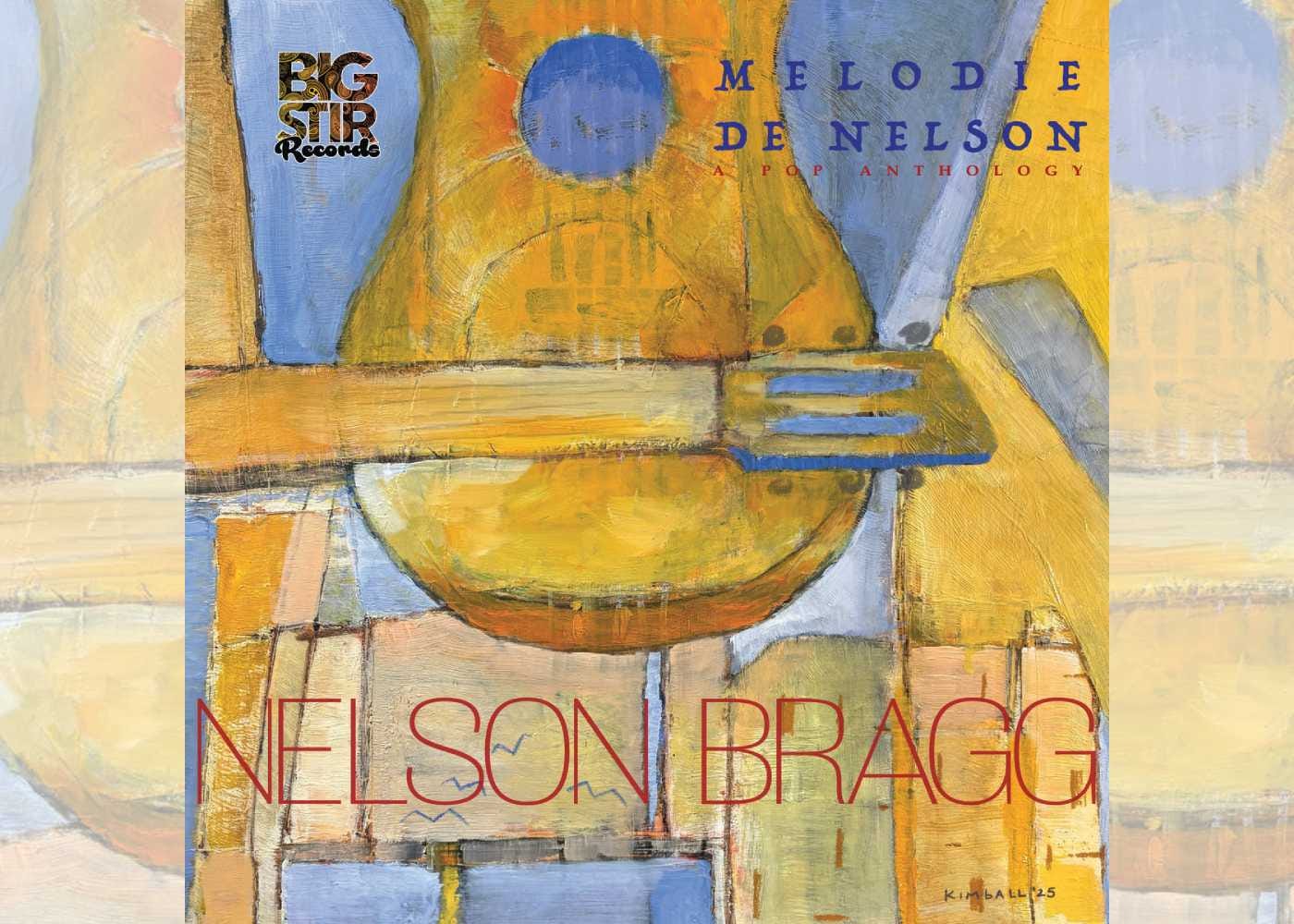The ironically named Nelson Bragg is, despite his stellar credentials, a model of rock and roll humbleness.
And now it’s on the record. Melodie de Nelson: A Pop Anthology (Big Stir Records) is a perfect entry into the world of a songwriter with his own take on pop history.
“We’re Gonna Laugh About It” starts with a dB’s jangle (think “Black and White”), then strikes a pointed balance between urgency and ethereality. “She Used to Love Me” is The Byrds housed in walls of Spector; “Forever Days” has the eternal ring of an evergreen standard; refusing to commit to a single genre, it tinkers with country but stays on the fence.
As a musician, Bragg is decidedly hinged. Everything—songs, performance, arrangements—unabashedly fit together; nothing is loose, rusty, or superfluous. He doesn’t record to serve his own ego. He’s here to serve the songs, and to serve the audience a rock-solid pop experience with a side order of chops.
This guy can pretty much play any instrument you hand to him—even ones that haven’t been invented yet.
And you’ve got to hand it to him, because there’s also the richly layered production, which practically dares you to get to the bottom of it. Despite his credentials, which include touring and recording with Brian Wilson and contributing to a wide range of musical projects large and small, Bragg remains as grounded as a pad-mounted transformer.
The day he went electric after a folk rock beginning, there was power pop rejoicing in the streets. Okay, that might be a small exaggeration, but this unassuming melodic genius seemed to just come out of the woodwork.
A compendium of many of the best songs from his obscure run of albums, Melodie de Nelson kicks in—or ticks in—like a tightly wound watch.
This isn’t second-hand stuff, this is major Nelson. You’ll hear traces of everybody from The Moody Blues and Stealer’s Wheel to CSN and Marshall Crenshaw. Like power pop mavens Shoes and the early dB’s, Bragg’s inward lyrics largely draw upon romantic mishaps and disappointments.
And while this project is purely Nelsonian, over the course of the 15 tracks are contributions from dozens of like-mindedly brilliant musicians. “No One’s Home in Hollywood” is a rumination on the transient nature of Tinsel Town, where dreams come in on the next bus. “Tell Me I’m Wrong” has a Richard Barone-ish intro, breezy Buffalo Springfield harmonies, and a vibrating underlay of Duane Eddy twang (please, no Nelson Eddy jokes).
“Whitechapel Girl” worships at the Andy Partridge altar but doesn’t prey on his influence.
“You Could Believe” matches peppy Raspberries guitars with a rainbow of overarching harmonies. The transistor-worthy “Every Minute of the Day” has a swath of canny Beach Boys vocals; “Seriously Girl” goes even deeper into the Pacific; it’s like the missing Carl Wilson song we always deserved to hear. Furthermore, it’s adorned with something akin to Left Banke mellotron, which adds frills and chills.
“Seriously Girl” sounds like a different take on “We’re Going to Laugh About It.” Titles not aside, it contemplates seriousness in contrast to the opening track’s humorous hindsight.
And if there was ever any doubt as to the major Nelson influence, closing the album is none other than a song about Caroline. The maneuver adds emotional weight to what precedes, putting it on a musical scale with set pounds.
Melodie de Nelson is a primer, but not a skimmer. Every song is a celebration of the power of pop, and you’re invited.
Jordan Oakes founded, published, and edited the Yellow Pills power pop magazine beginning in 1991, and compiled five Yellow Pills CD compilations beginning in 1993. His journalism has also appeared in Sound Choice, Speak, The Riverfront Times, The Christian Science Monitor, Rolling Stone’s ‘Alt-Rock-a-Rama’ book, and elsewhere. He’s a published poet and occasional standup comedian. He loves dogs and dog-eared magazines.










Great music! Thanks for the opportunity to explore it!